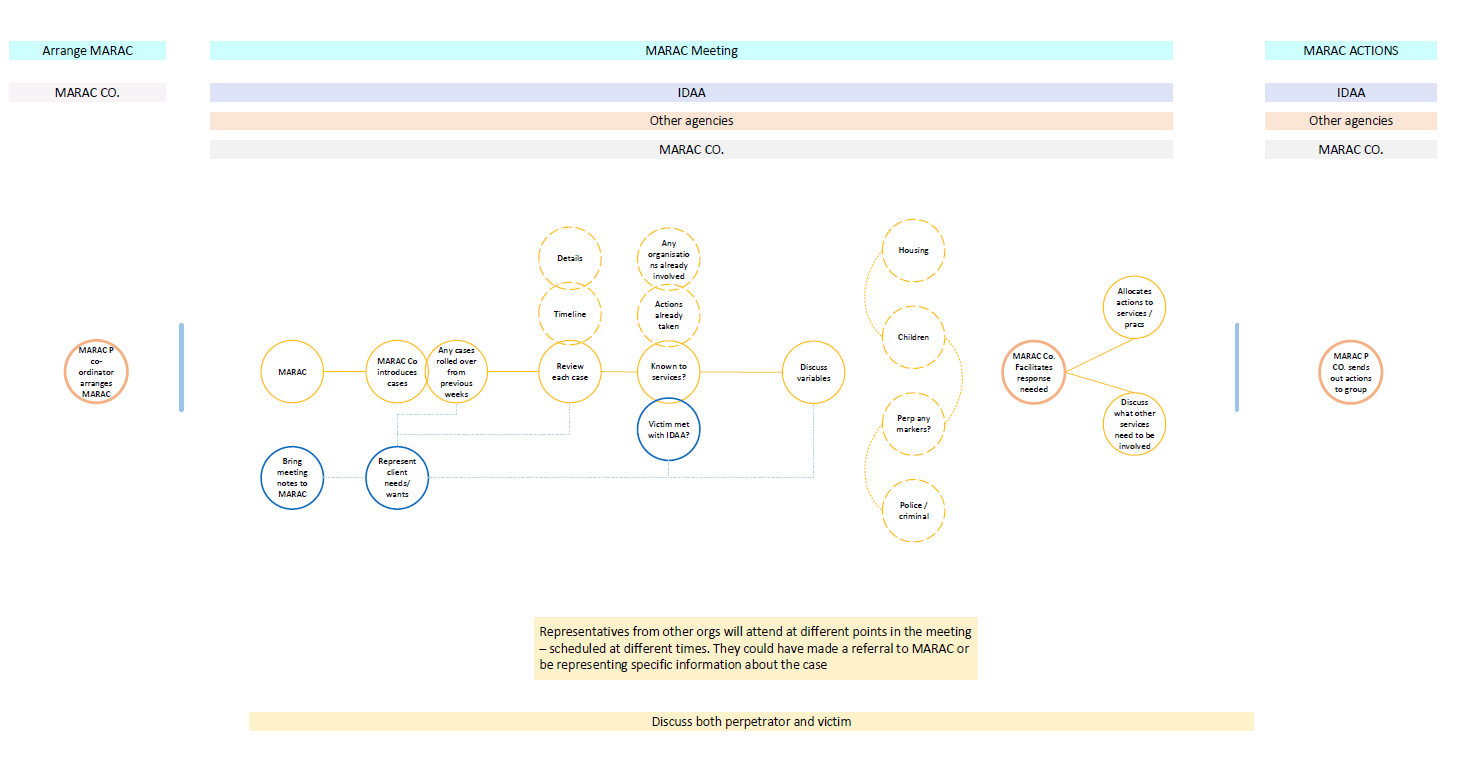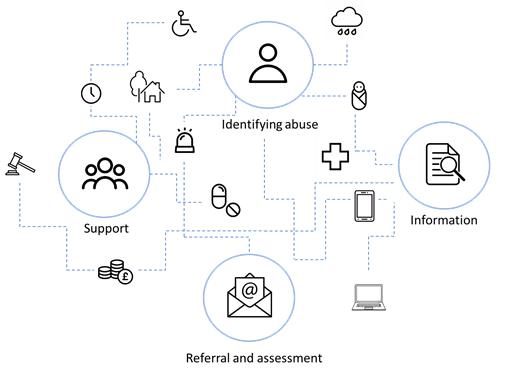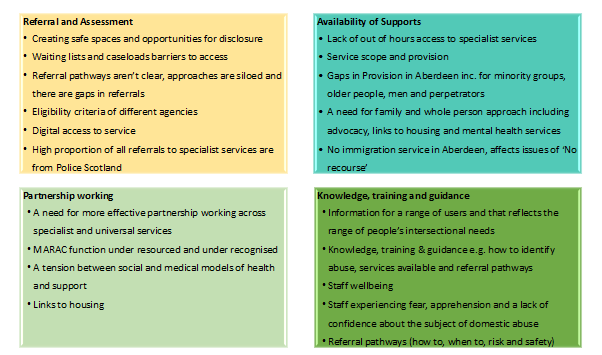The Aberdeen City Pathfinder project explored how Technology Enabled Care (TEC) can play a role in supporting the delivery of multi-agency services for people, aged 18+ who experience domestic abuse.
Objective
Given the traumatic and sensitive nature of the subject area it was vital concern not to re-traumatise people who had experienced domestic abuse. We therefore began our research with staff from both specialist and universal services and other stakeholders, so we could sense-check our findings and gain support to engage with citizens at a later stage.
What we did and how we did it
Interviews with individuals were carried out to build a picture of their journey and highlight key gaps, barriers or ‘pain points’.
In the interviews, participants were asked about:
- service delivery,
- referral pathways and
- practitioners' own experiences of delivering support.
We shared the resulting journey maps and insights with stakeholders and interviewees as transcripts, and in sense making workshops.

Beyond the individual journey
From these individual journey maps it was possible to put together a high level picture of the different stages that a person may have to go through when they try to access support for domestic abuse .

How journey mapping helped uncover problems
The journey maps, taken together uncovered a range of issues facing both citizens and stakeholders in accessing and providing support for domestic abuse:

